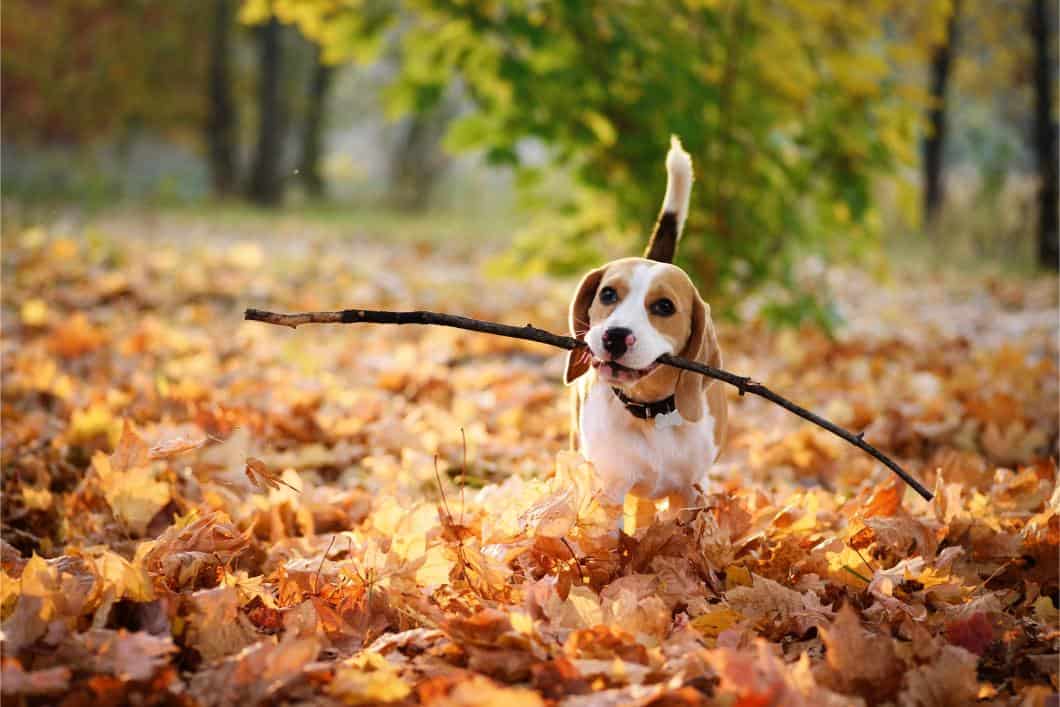Common Fall Toxins: Protecting Your Pet From Seasonal Hazards

As we start to approach fall, it’s time to consider seasonal pet safety. Autumnal changes are definitely on the horizon. Shorter days, cooler, air, and various fall-specific activities are on their way. Are you and your pet ready to stand up to seasonal hazards?
Fall breaks up the monotony of hot, humid summer days, and ushers in a host of delicious, satisfying flavors and festivities. It’s simply fun, and with a kaleidoscope of autumn’s colorful falling leaves, autumn is a great time to make meaningful memories with our family pets.
Identification and Preventives
We encourage all pet owners to check pet ID tags and collars for any wear and tear. Pick out some new gear that matches new sweaters, vests, or rain jackets. Also, if it’s been a while since they were microchipped, and your contact information has changed, we encourage updating personal information with the chip’s manufacturer.
While walking, be sure to have lights on your pet, reflective items, and use caution on busy streets.
Decor and More
While some fall decorations can be harmless, the following Halloween-themed items can present certain risks to pet safety:
- Edible decor, including popcorn, corn cobs or husks, and gourds
- String lights
- Animatronic displays
- Anything with batteries
- Candles
- Potpourri
If something looks remotely tempting to your pet, please save it for another time. Choking hazards, entanglements, poisoning, and electric shock are just some of the related risks of fall decor.
Mushrooms
Fall sees lots of toadstools popping up on rotting tree stumps, walking trails, and all over green spaces. Pets are often curious about the look and smell of fungi, but it’s best to err on the side of caution and train them not to sample mushrooms. Most mushrooms are not toxic, but if a pet ever finds a poisonous one, they may suffer life-threatening symptoms.
Autumn Pet Hazards
It might seem like serious threats to pet safety are behind us, but they are always out there. With an eye on prevention, we can help you update any boosters, test for vector-borne illness, including Lyme disease and heartworm, and get on track with year-round parasite prevention. Remember, mosquitos, ticks, and fleas can be found all year long in Georgia.
If you have further questions about ways to keep your pet safe and happy all year long, please call us at (770) 924-8847. Our team is always happy to help you at the Animal Hospital of West Woodstock.
